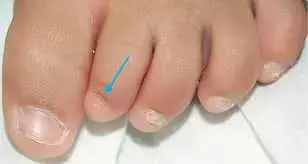- Home
- Medical news & Guidelines
- Anesthesiology
- Cardiology and CTVS
- Critical Care
- Dentistry
- Dermatology
- Diabetes and Endocrinology
- ENT
- Gastroenterology
- Medicine
- Nephrology
- Neurology
- Obstretics-Gynaecology
- Oncology
- Ophthalmology
- Orthopaedics
- Pediatrics-Neonatology
- Psychiatry
- Pulmonology
- Radiology
- Surgery
- Urology
- Laboratory Medicine
- Diet
- Nursing
- Paramedical
- Physiotherapy
- Health news
- Fact Check
- Bone Health Fact Check
- Brain Health Fact Check
- Cancer Related Fact Check
- Child Care Fact Check
- Dental and oral health fact check
- Diabetes and metabolic health fact check
- Diet and Nutrition Fact Check
- Eye and ENT Care Fact Check
- Fitness fact check
- Gut health fact check
- Heart health fact check
- Kidney health fact check
- Medical education fact check
- Men's health fact check
- Respiratory fact check
- Skin and hair care fact check
- Vaccine and Immunization fact check
- Women's health fact check
- AYUSH
- State News
- Andaman and Nicobar Islands
- Andhra Pradesh
- Arunachal Pradesh
- Assam
- Bihar
- Chandigarh
- Chattisgarh
- Dadra and Nagar Haveli
- Daman and Diu
- Delhi
- Goa
- Gujarat
- Haryana
- Himachal Pradesh
- Jammu & Kashmir
- Jharkhand
- Karnataka
- Kerala
- Ladakh
- Lakshadweep
- Madhya Pradesh
- Maharashtra
- Manipur
- Meghalaya
- Mizoram
- Nagaland
- Odisha
- Puducherry
- Punjab
- Rajasthan
- Sikkim
- Tamil Nadu
- Telangana
- Tripura
- Uttar Pradesh
- Uttrakhand
- West Bengal
- Medical Education
- Industry
Rare case of Anonychia Congenita reported- A report

A case study published in the Journal of the Association of Physicians of India reports a case of a 32-year-old female born of a non-consanguineous marriage presenting with complete absence of finger and toe nails since birth and similar presentation in family members over four generations, suggesting an autosomal dominant inheritance.
Non syndromic Anonychia congenita or congenital absence of finger and toe nails is a rare disorder known to occur due to autosomal recessive inheritance of mutation in the R-spondin-4 gene. Absence of finger and toe nails is termed as anonychia. Anonychia or hyponychia is a rare disorder attributed to homozygous or compound heterozygous mutation in the R-spondin-4 gene on chromosome 20p13. 2,3 Anonychia or hyponychia may be partial or total and is usually associated with other skeletal or limb anomalies and various genetic syndromes like Coffin-Siris syndrome and Nail–patella syndrome. Non syndromic congenital anonychia is a rarer entity with only a few case reports in literature.4,5 The presence of an autosomal dominant form of the disease has not been reported to the best of our knowledge.
A 32-year-old female, presented with complete absence of fingernails and toenails since birth. She did not have any bony abnormalities, dysmorphic facies or abnormal hair or teeth. Her developmental milestones and intelligence were normal. Her family history was significant for complete anonychia over 4 generations. There was no history of consanguineous marriage among family members.
Although syndromes associated with anonychia are usually autosomal dominant (like Coffin-Siris syndrome and nail-patella syndrome), isolated non-syndromic congenital anonychia has an autosomal recessive inheritance pattern. A partial autosomal dominant form of the disease affecting only the thumb is also known. Most of the case reports of non-syndromic anonychia are seen in consanguineous marriages and are not known to affect more than one generation. In this case, presence of anonychiawas observed over 4 generations. This along with the absence of a consanguineous marriage precludes the presence of autosomal recessive inheritance. Whether, this can be attributed to autosomal dominant mutation of the same or different gene will be a question for future research. A detailed genetic evaluation could not be done in our case due to financial and technical limitations.
Reference:
Anonychia Congenita - Rare Inheritance of a Rare Disorder by Jain Vasudha et al. published in the Journal of the Association of Physicians of India.
https://www.japi.org/x2a4b464/anonychia-congenita-rare-inheritance-of-a-rare-disorder
Dr. Shravani Dali has completed her BDS from Pravara institute of medical sciences, loni. Following which she extensively worked in the healthcare sector for 2+ years. She has been actively involved in writing blogs in field of health and wellness. Currently she is pursuing her Masters of public health-health administration from Tata institute of social sciences. She can be contacted at editorial@medicaldialogues.in.
Dr Kamal Kant Kohli-MBBS, DTCD- a chest specialist with more than 30 years of practice and a flair for writing clinical articles, Dr Kamal Kant Kohli joined Medical Dialogues as a Chief Editor of Medical News. Besides writing articles, as an editor, he proofreads and verifies all the medical content published on Medical Dialogues including those coming from journals, studies,medical conferences,guidelines etc. Email: drkohli@medicaldialogues.in. Contact no. 011-43720751


